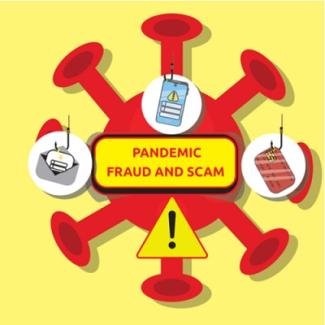
Coronavirus Stock Frauds and Charity Scams
Spreading almost as fast as the virus itself, we have witnessed the proliferation of COVID-19 frauds preying upon either our good nature or our greed.
You have probably seen solicitations for bogus fundraising organizations claiming to help victims of COVID-19 or health care providers/first responders. Our simplest and best advice is to simply avoid giving to any pop-up charity that you are unfamiliar with. For more details on how to identify a fraudulent scheme masquerading as a charity, please see this article from Charity Navigator, an excellent resource for evaluating charitable organizations. Lastly, please consider the possibility that your favorite non-COVID-19 related charity has suffered a significant drop in donations, and yours would be most appreciated.
Also worthy of consideration are the provisions of the CARES Act that relate to charitable giving. For taxpayers who are not itemizing deductions on their 2020 taxes, there is an additional "above-the-line" deduction for cash gifts up to $300. For taxpayers who are itemizing, cash contributions are now deductible up to 100% of adjusted gross income (increased from 60%).
Stock scams tend to revolve around penny stocks whose share prices are easily manipulated. As of May 6, the Securities and Exchange Commission (SEC) has suspended trading in the shares of 32 companies related to dubious (to put it charitably) claims with respect to vaccines, cures, treatments, tests, and personal protective equipment.
For example, Praxsyn, whose share price is now a small fraction of a penny, falsely claimed that it had acquired millions of N95 masks that it could sell at a handsome profit. It’s share price increased by about 77% on the day of the announcement, allowing the owners to exit at a value that was completely unsupportable based on the company’s fundamentals. We generally advise investors not to dabble in individual stocks, but it goes without saying that nobody should ever make an investment based on a call from a stranger.
If you’re starting to have doubts about basic human decency, note that we haven’t even touched on the identity-theft and stimulus-check-stealing schemes related to COVID-19. Always keep the following precautions in mind.
- Never click on a link or open an attachment in an email from an unknown sender. Even if the email appears legitimate, always look at the sender’s email address. Furthermore, if the email looks unusual for that sender, then consider the possibility that the sender's email account was hacked.
- Never share your personal or financial account information with anyone other than a trusted advisor. Remember, no company where you have an account will ever call you to ask for information that they already have.
- Do not answer calls from numbers you do not recognize. Government employees will never call you for personal or account information.
- Ignore any text messages that tell you to leave your home.
As the stay-at-home orders are starting to be relaxed with a gradual re-opening of the economy, we wish all our clients and plan participants a safe and enjoyable summer.

